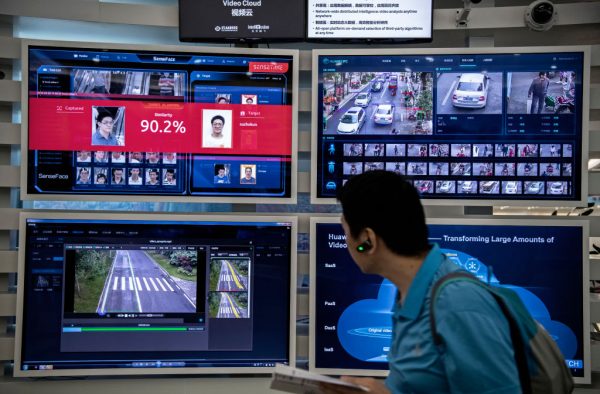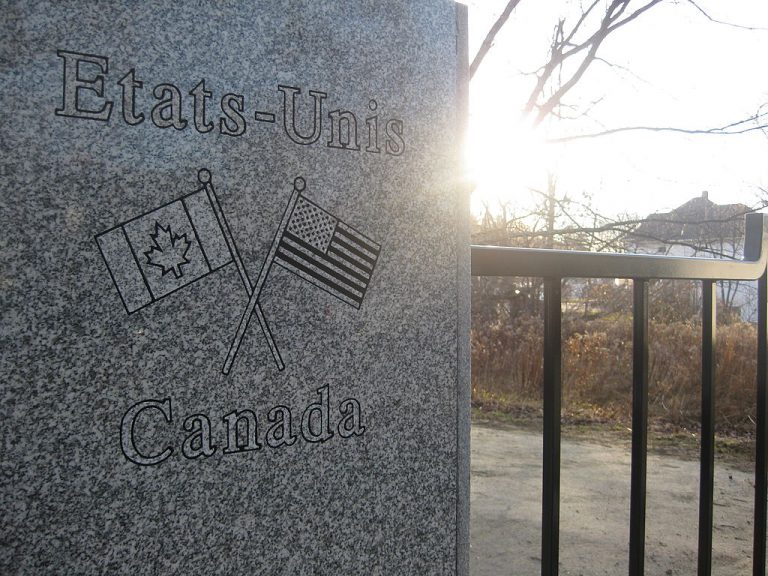The Trudeau government opened bidding for a contractor specializing in biometrics to work with the Canada Border Services Agency (CBSA) for the purpose of the immediate creation of the Office of Biometrics and Identity Management. The government’s official tender website says the purchase is meant to aid in the “COVID 19 situation and other operational priorities.”
Public Services and Procurement Canada opened a two week bidding process for a contractor “with knowledge of and expertise in biometrics” on June 7.
The posting says the contracted company will “assist with the immediate establishment of an Office of Biometrics and Identity Management and to work with the Agency in researching, planning for and rapidly developing a strategy and roadmap related to the use of Digital solutions enabled by supporting technologies in biometrics, in response to the COVID 19 situation and other operational priorities.”
The U.S. Department of Homeland Security has a nearly identically named Office of Biometric Identity Management.
In terms of qualifications, the company chosen for the Trudeau government’s payout on the order will “bring knowledge, capabilities, and experience to support CBSA’s urgent need to establish a biometric strategy, biometric foundation and ultimately a Biometrics Authority (Centre of Excellence),” and “will assist the CBSA with the development of a comprehensive approach and plan to manage, evolve and adapt in using biometrics.”

Success
You are now signed up for our newsletter
Success
Check your email to complete sign up
Although Prime Minister Justin Trudeau has avoided talk of vaccine passports in his dissertations to Canada’s one-voice left-wing media, on June 8 the PM said his administration was “preparing to ease” border restrictions, such as mandatory hotel quarantine and 14-day quarantine, for vaccinated travellers alone.
Trudeau, like many other world leaders, heavily promotes the rhetoric that universal vaccination is the only path his country has in combating a dubious, non-lethal SARS-COV-2 pandemic. He recently stated, “We need people to get the full two doses of their vaccines and that’s why easing of restrictions will be focused on Canadians who are fully vaccinated.”
Canada, a country with 37.5 million people, has had 1.4 million positive PCR tests since the pandemic began. This caseload has translated into a marginal 25,873 deaths as of June 10, according to data from Google.
Statistics for Canada’s most conservative province, Alberta, from the Provincial government show a total of 229,949 positive PCR tests across all age brackets. Alberta, which is home to almost 4.4 million people, has been fortunate enough to only suffer 2,262 COVID-19 associated deaths as of June 10.
The Province’s fatality rate is very heavily weighted toward the elderly. 273 people between 60-69, 475 between 70-79, and 1340 over the age of 80 have passed away from causes associated with COVID-19.
By comparison, only 25 people under the age of 40 have died from a cause associated with the disease.
Nonetheless, the Province reports it has administered more than 3.2 million single doses of the Pfizer and AstraZeneca vaccines to residents.
Trudeau’s Liberals have budgeted more than a half billion dollars for facial recognition and fingerprint tracking technologies for the CBSA.
The CBC, Canada’s notoriously pro-Liberal Party public broadcaster, published an op-ed penned by Petra Molnar and Jamie Liew, both lawyers and staffers at leading Canadian universities, critical of both the risks and lack of oversight in the development and installation of technocratic means at Canada’s borders, “Intrusive technology like facial recognition and other automated AI systems can exacerbate systemic racism and oppression, dehumanize people, and contravene various domestic and internationally protected human rights,” reads the article.
“These technologies can make racist and sexist inferences that have far-reaching impacts in immigration settings, for example.”
Liew and Molnar give a specific example, “This was demonstrated by the European Union’s recently shelved pilot project iBorderCRTL. The AI-powered lie detector deployed at the border was widely criticized for discriminating against people of colour, women, children, and people with disabilities, resulting in a court challenge.”
The authors say the CBSA has tested a similar system dubbed AVATAR, which stands for Automated Virtual Agent for Truth Assessment in Real Time, at its laboratories, but claims it “is not considering using AVATAR on real travellers in the future.”
Website The Walrus illustrates how one such example of biometric surveillance is used in a U.S. detention facility in Texas that houses migrants, “Kassandra Flores is wearing a state-issued boxy maroon top, matching baggy pants too long for her legs, and beige sandals. She stands up straight with her arms at her sides and her toes at the edge of a piece of black and yellow tape on the tile floor. A guard tells her to look directly into the lens of a camera that will capture a high-resolution image of her irises so an algorithm can compare it against a vast, ever-growing database owned by law enforcement.”
“The image will be stored there indefinitely, unless a judge orders the record expunged, and shared with law enforcement agencies across the country, including the FBI. Individual law enforcement agencies can also choose to share the data with Immigration and Customs Enforcement (ICE).”
The functionality of these systems is often spurious at best. The Walrus explained the CBSA’s study on AVATAR and its less-than-convincing results, “Eighty-two volunteers from government agencies and academic partners took part in the experiment, with half of them playing ‘imposters’ and ‘smugglers,’ which the study labelled ‘liars,’ and the other half playing innocent travellers, referred to as ‘non-liars.’ The system’s sensors recorded more than a million biometric and nonbiometric measurements for each person and spat out an assessment of guilt or innocence.”
“The test showed that AVATAR was ‘better than a random guess’ and better than humans at detecting ‘liars.’ However, the study concluded, ‘results of this experiment may not represent real world results.’ The report recommended ‘further testing in a variety of border control applications’.”
In early June, Chinese Communist Party controlled social influencing video app TikTok updated its privacy policy to give itself permission to collect biometric data from its user base, which is primarily composed of children and the youth, in addition to a litany of personal data the app already collects.

















